Life lessons from India's 39th GM - Ashwin Jayaram
The people who struggle to reach their destination often have the best stories to tell. Meet India's 39th GM Ashwin Jayaram. Born in 1990, Ashwin quickly became one of the best junior players in Indian chess, winning the Asian Juniors twice, reaching an Elo of 2480 and scoring three GM norms. By 2007, it seemed only a matter of time before he would become a GM - at least that's what everyone thought. 8 years! That's the period Ashwin had to wait to get his last 20 Elo points. In the year 2015, Ashwin Jayaram became India's 39th GM. This is a story of hard work, how to fight tough situations, how to ride the ebbs and flows of life and more importantly how to never give up! This is the story of Ashwin Jayaram's life.
The ChessBase India newspage began somewhere towards the end of 2015. At that point India had just got its 40th GM Swapnil Dhopade. We have now come a long way in the last four years and have reached a tally of 65 GMs. We have interviewed and covered the life of almost all of the GMs in this period. Subsequently we have coverage on almost all the GMs starting from Vishy Anand. However, there is one person, who was never interviewed by us. He has no article written on him on the newspage, nor do we have any video on him on our YouTube Channel. He is India's 39th GM Ashwin Jayaram.
Ashwin is my close friend and we were both born in the year 1990. Over the years we have played against each other several times as well. In 2014 he decided to shift to the US and since then has completed his GM title, masters degree in finance and is also working in one of the top financial services firm. For me, it was extremely important to bring forth the life of Ashwin in front of the readers of ChessBase India. Struggle is quite a subjective term, but in my opinion there are very few people in Indian chess who were as talented as Ashwin, and yet had to struggle as much as him to get to the GM title. From being one of the best juniors in the country in 2007, having a rating of 2480 and three GM norms, to having to wait eight years to get those final 20 Elo points, Ashwin has life experiences, which are highly valuable to all youngsters in Indian chess trying to achieve something special.
One fine day towards the end of 2019 I sent some questions over to Ashwin, who was in the US. We exchanged several messages and mails and I am glad to say that I am finally able to put the story of Ashwin Jayaram's chess career in front of you. I hope you will find it instructive.
Ashwin Jayaram's battle of reaching 2500 Elo for 8 years
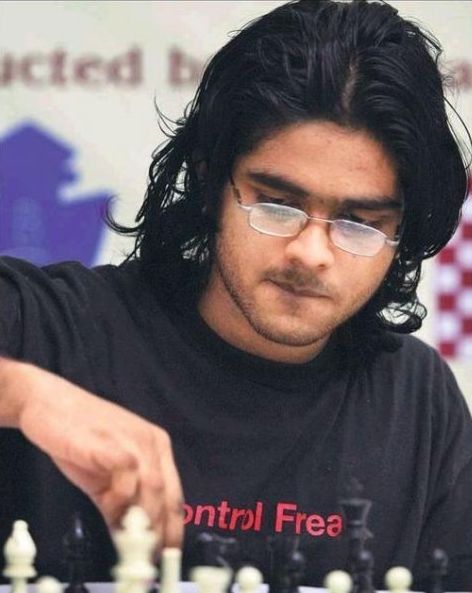
Sagar Shah (SS): How did you begin playing chess and who were your initial trainers?
Ashwin Jayaram (AJ): I first learnt the rules of chess at the age of 8 from my cousins and uncle. After that, I started going to the Chessmate academy run by Manuel Aaron. Apart from that, one of my initial trainers was K Ganesan.
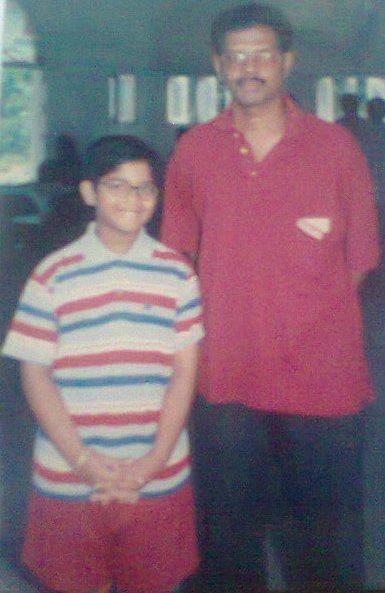
SS: You were considered as one of the talents of Indian chess in your age group. Looking back what do you think was your special characteristic?
AJ: I think that one of the factors that worked for me was that I kept trying. At every level, when things wouldn’t work for me, I kept trying until I made progress. When I was playing interschool tournaments, I didn’t win any prizes. I think I lost every single game in my first tournament. After several tournaments, I finally got my first prize. Then I became a regular prize winner in the youth tournaments.
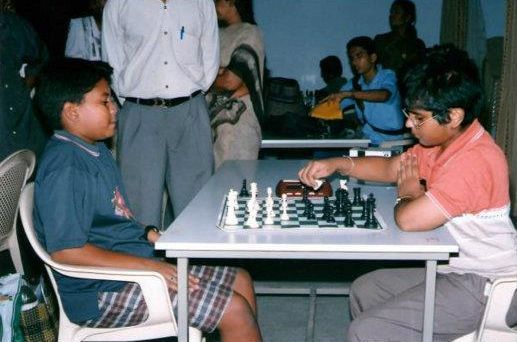
My next struggle was to get a FIDE rating (back when the minimum rating was 2000!). I would lose every single game I played against a rated player. Eventually I started to get more comfortable playing against them and was able to beat them on a more regular basis. One of my memorable games was my first win against an IM. I was an unrated player and I was playing against IM Sudhakar Babu (in 2002). After a long game, I was able to outplay him. This same pattern emerged when I wanted to break into 2200, and then to 2300.
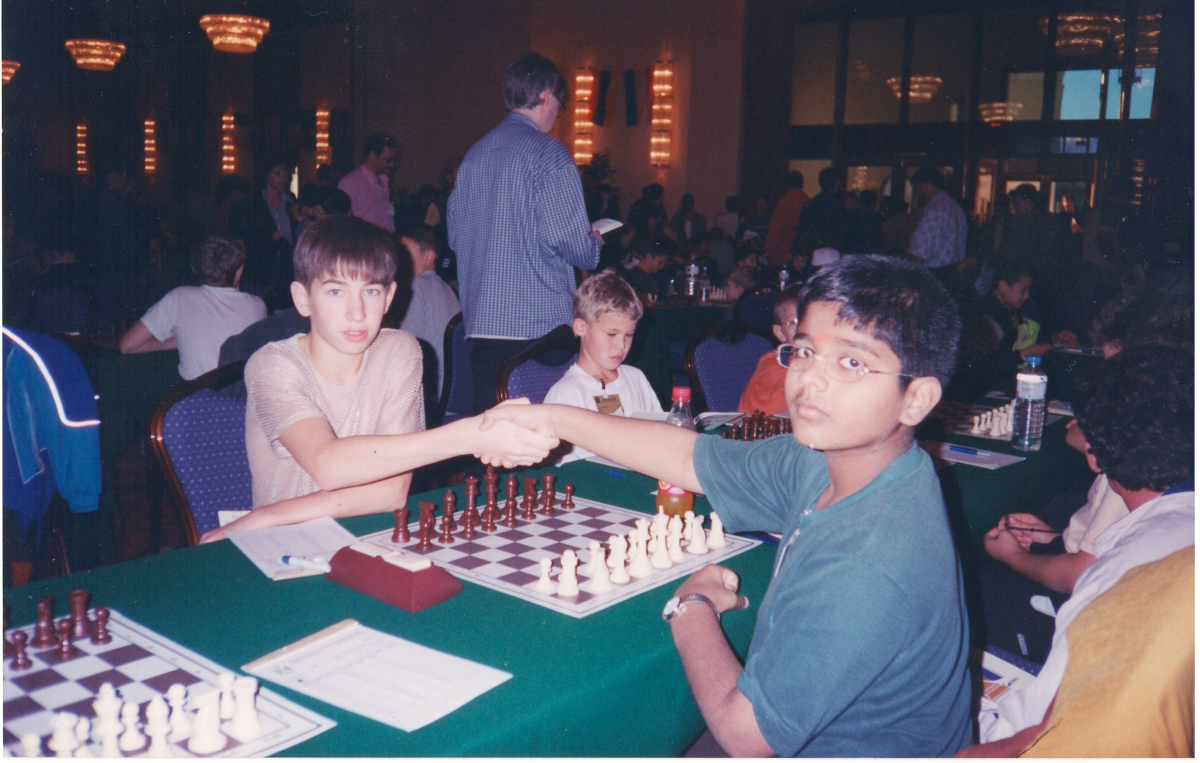
SS: I would often see your mother accompanying you to tournaments. What has been the role of your parents in your chess career?
AJ: They have both had a tremendous influence on my chess life. At the age of 12, when I was getting very serious about chess, my mother quit her job so that she could travel with me. I was able to play against a lot of strong chess players and was able to make progress with my game. My father was supporting me from the background by funding my chess tournaments and coaches. I never had any sponsorship, so I wouldn’t have been able to do much without his help either.
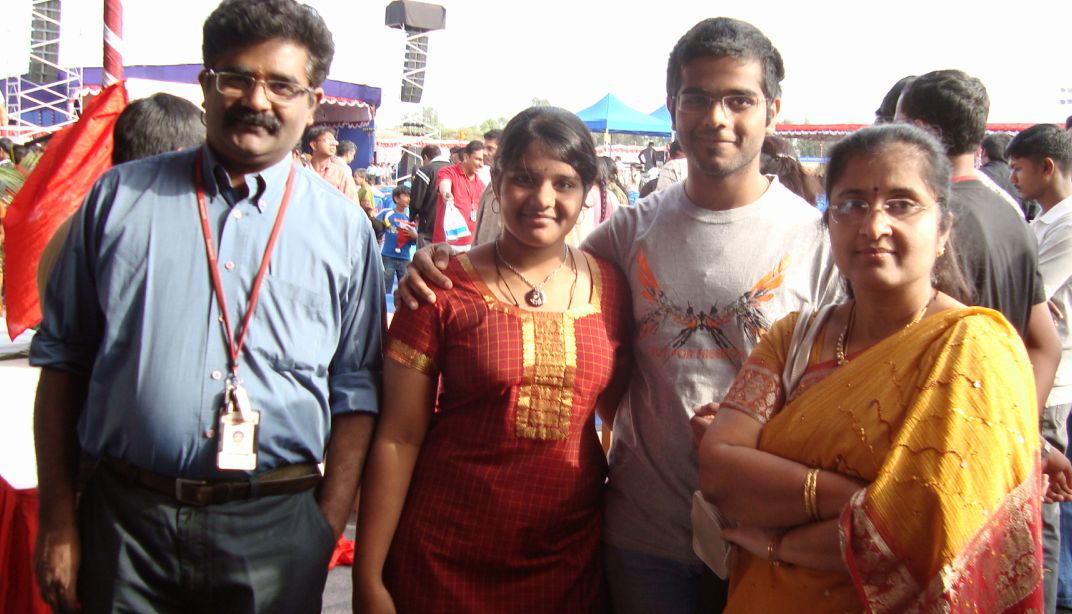
SS: After you started improving (2200 and above) who were the coaches that moulded you into a stronger player?
AJ: When I was 15, I was stuck on 2200 for some time and was unable to break into the next level. I had a few sessions with Ramesh that proved to be very fruitful. When I was young, I used to play very aggressive chess, but that had reduced when I was trying to add a positional element to my game. He was able to make me play more fearlessly and confidently, and as a result, my rating jumped from 2221 to 2478 in about a year (back when I only had a K of 15). After that, I had many other coaches like Alon Greenfeld and Abhijit Kunte who taught me more about the game and other preparation methods.
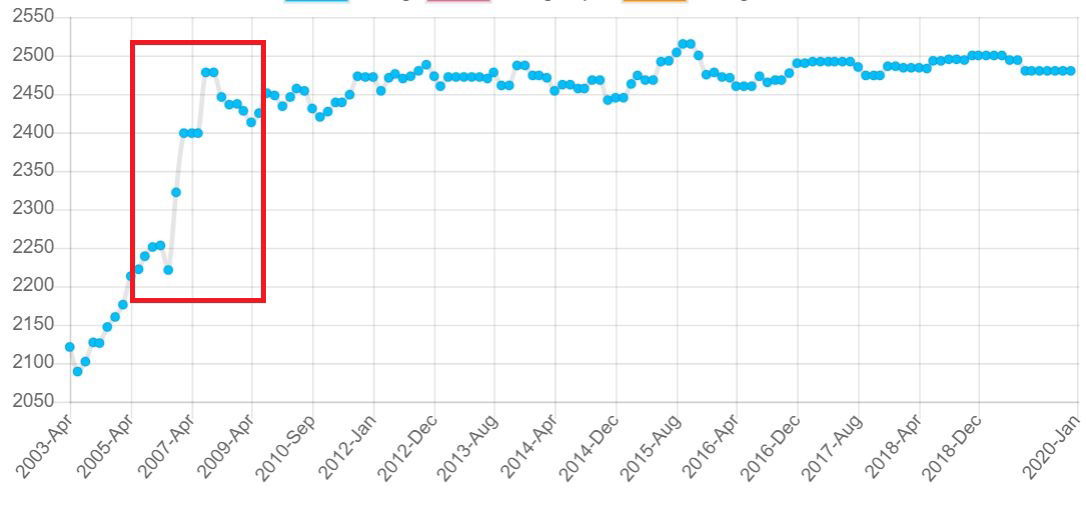
SS: What were some of the biggest achievements in your sub junior/ junior chess career?
AJ: I got two gold medals and a silver medal at the Asian Juniors, many Commonwealth medals, and finishing around the top 10 mark at the World U-16 and U-18 events.
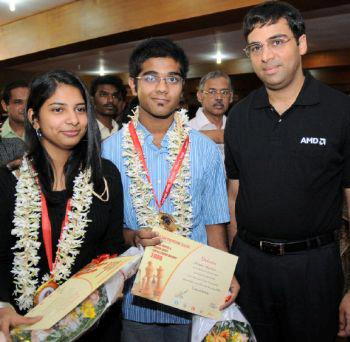
SS: You reached the rating of 2478 in October 2007, when you were just 17 years old. I remember you used to compete on equal terms with guys like Adhiban, Vidit, Sethuraman and other Indian GMs who have now gone on to reach 2600, 2700 and beyond.
AJ: It was a great feeling as it was a considerable jump. From a lower 2200 player, I had become one of the top juniors of the country. In the summer of 2007, I was selected to play some tournaments in Spain along with the other juniors who qualified. My very first norm was a GM norm, and I got my IM norms in the next two tournaments as well.
There’s a funny story in the first Spain tournament. For some reason, one of my previous tournaments in India had been sent incorrectly to FIDE and there was another Ashwin in the rating list with a slightly different spelling and a 2000 rating. My rating then was 2399, but I was paired against a GM in the first round as they registered me as a 2000 player. I only found that out after I got to the tournament hall, and it was too late to do anything about it. I had never beaten a GM until that point, so I was very nervous, but I ended up winning a very interesting game. After that, I was able to play against GM’s with more confidence. A few tournaments later, I faced a 2600 for the first time ever and managed to beat him.
SS: Tell us about your journey from IM to GM title. You received your IM title in 2007 and became a GM in 2015. Where did you make your GM norms?
AJ: I made my GM norms in Sort Open 2007, the Asian Junior Championships in 2008 and 2009, Golden Sands in 2013 and Chicago Open in 2015. I got my 3rd norm in 2009, but I still needed to cross 2500. I came very close to the 2490-2500 range on several occasions but would often play one bad tournament which got me back to 2460-2480.
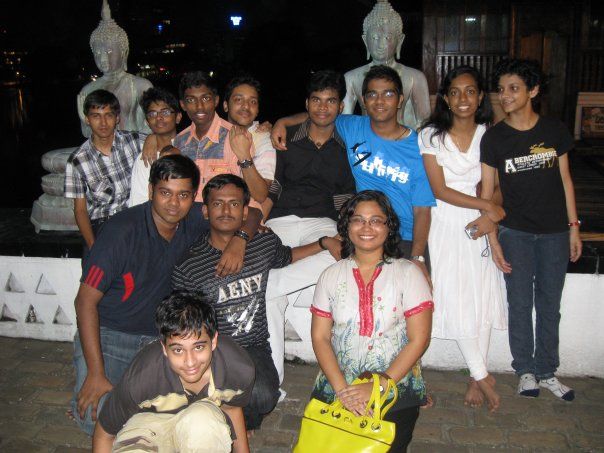
SS: You were in the 2450 to 2499 zone for nearly 8 years. Why was this the case?
AJ: I think I made many mistakes that delayed my GM title.
1. My first mistake was playing too much. My tournament plan was not very strategic. I always felt confident before tournaments and played more tournaments than I should have. There were several instances where I decided to play a tournament on a whim, and it often went poorly for me. I should have spent more time training or relaxing.
2. Another mistake was playing a lot of tournaments in India (or at least more than I should have). There were many instances where I gained a lot of rating in International events and came back to India to lose most of my gains in 1-2 games against very strong underrated players. I really enjoy playing chess and travelling to chess tournaments, so the decision to play many of these tournaments were made on a whim (which again goes back to the strategic tournament plan issue). I often joked that the reason I got the GM title was because when I was getting close to 2500, I was too far away from India (Ashwin was in the US) to play a tournament there and lose some rating.
3. My attitude towards the title also deteriorated. When I first got the IM title, I assumed that the GM title was a formality. After running into walls, and getting the title delayed even more, I started to panic. This led to a very erratic mental state. When every rating point mattered, I kept thinking more about the rating, than about my game. Some tournaments went great for me as I was able to play with confidence. But some other tournaments went terribly as I was playing with some fear (even against the lower rated players).
4. I also spent most of my training time by myself. While I got a lot of work done, I’m sure that I would have been able to grow much faster if I would have made it a point to work with more people.

SS: It's amazing how you are so objective about the situation back then and can pin point your mistakes accurately. But it must have been quite a depressing period, right?
AJ: There were several instances where I was very close to 2500 but didn’t make it. In 2012, I made it to 2490+, but a few bad tournaments (that I really had no reason to play) brought me back to 2460. In 2013, I came close to 2500 3 times.
I got my 4th GM norm in Bulgaria and played great chess in Bulgaria (which you also played). However, right before that tournament I had lost 30 points in another tournament. After Bulgaria, I was playing in Greece where I was playing well, and I again got very close to 2500. Unfortunately, I drew a winning position (where a win would have taken me past 2500) and then lost the last two rounds. This also affected my next tournament.
After that I played very well at the national challengers and got close to 2490. I decided to play another tournament (not a strategic tournament choice, but again based on a whim) and lost 2 games in the first 4 rounds. I had the sense to withdraw right after that, but the damage had been done. It was very difficult to get out of the rut that I had been in since 2007, as the years went by and I wasn’t getting any younger.
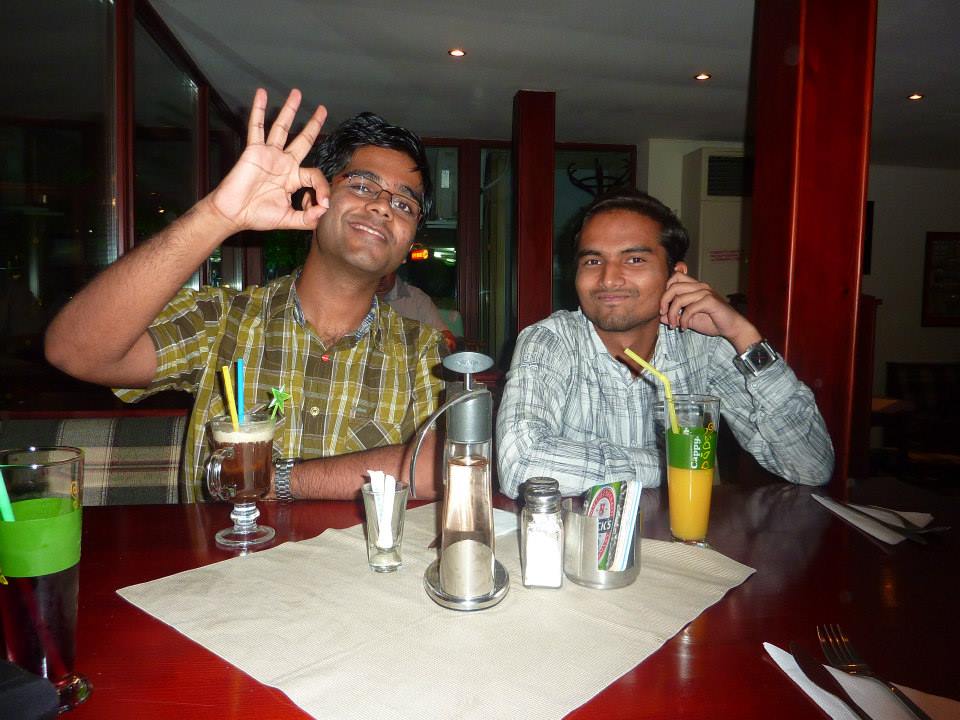
SS: You were ambitious and always wanted to make chess your profession, right? Why did you decide to go to the USA?
AJ: When I was younger, my goal was to be the world champion and be the best. As time went by, it became clearer that it was not going to happen. My mindset is that if I do something, then I want to be one of the best at it. Around 2013-14 I also started studying and applying to universities in the US and Germany. As the old chess advice goes, when you’re in a bad position, change the character of the game. I decided that I needed a change and the opportunity to learn more things.
SS: After getting admitted in Webster university, how did things change? How was the environment over there?
AJ: The main thing that changed were my priorities. After joining, my priority was my degree and my grades, and chess was secondary. This made things easier for me as losing a chess game bothered me a lot less. I was also able to practice a lot of chess with strong GM’s who were studying with me. This also helped me create close friendships with a lot of them.
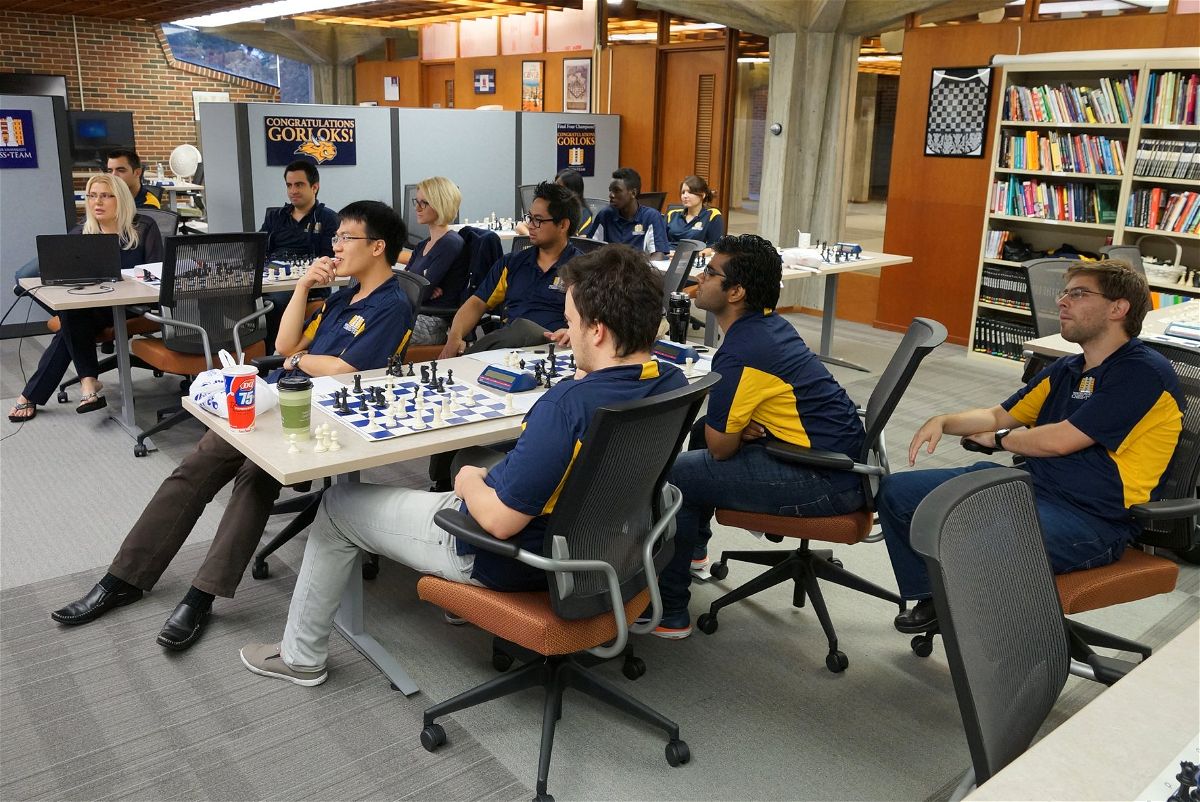
SS: And then almost in a year or so, you made your GM title! How did that happen?
AJ: At first, it was not easy for me to get used to the US Chess scene. After playing in Asia and Europe, it was not easy to get accustomed to double rounds on most days. After I got used to it, I played several tournaments and eventually crossed 2500. One of my bad habits in chess was to get into time pressure. For several months, I was able to play solid chess without getting into major time pressure. I was able to play consistently and without losing many games. The critical moment was when I got to 2490ish rating level. This time, I was able to maintain my composure and play at the same level.
SS: How was the feeling when you got your GM title finally?
AJ: When I crossed 2500, I was elated. It was a huge weight off my chest. However, after my tournaments ended, I was feeling very lost. I really wasn’t sure what I wanted to do with myself. I remember that after getting the title, I spent most of the next month playing video games until the university classes started again. I was feeling lost for a long time until I got an Internship in January 2016. That couldn’t have come at a better time as I was able to use some of the stuff I learnt and have a better understanding of how the real world actually functioned.
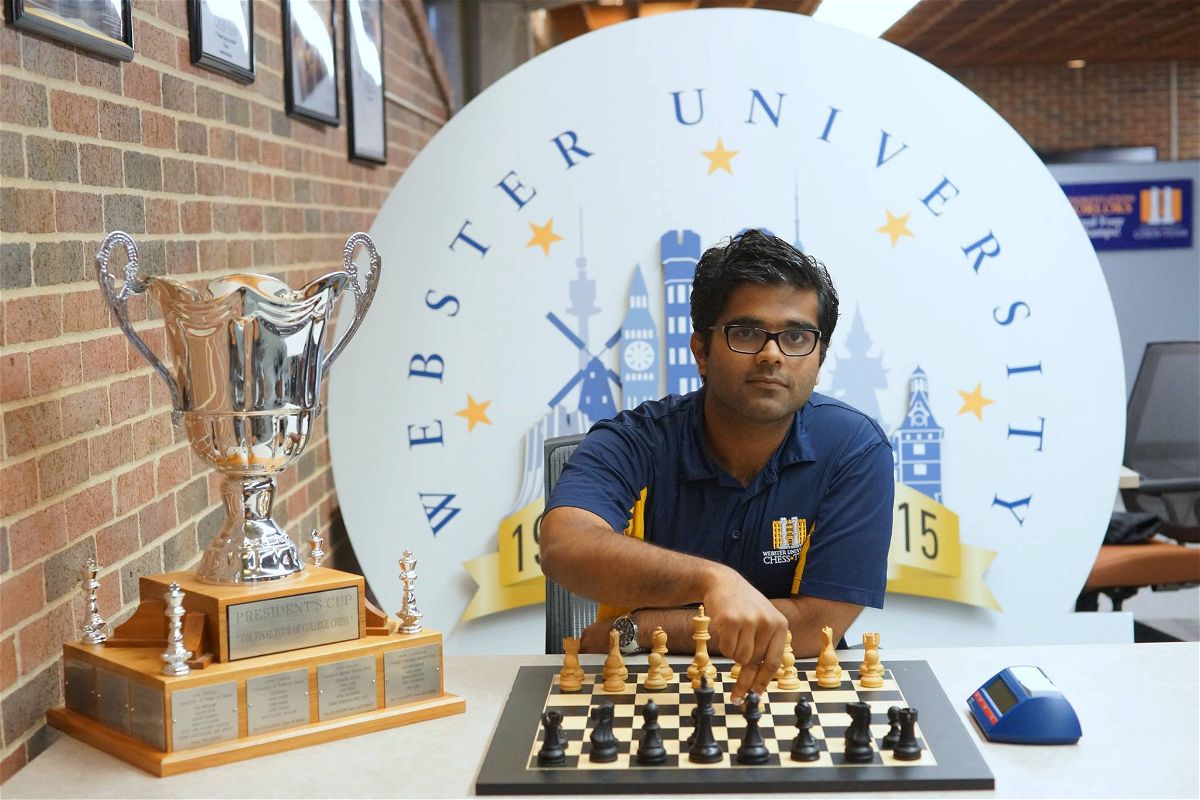
SS: What do you do now? Do you miss chess?
AJ: Right now, I’m an analyst at Wells Fargo. I’m spending a lot of my time learning more about the field I work in and the fields that interest me. Because I spent a lot of time on chess, I have a good frame of reference for how to plan my studying and how to get better at them. While my tournaments have reduced, I still see chess on a regular basis. I follow all the top games and still solve some puzzles. I often come by the tricky chess studies on ChessBase India and I am still able to solve the tricky ones in a few minutes! I haven’t quit chess, it’s just that chess is not the most important thing to me anymore. I still have a long-term goal to get to 2650. I’ll probably start working on it in the next few years.
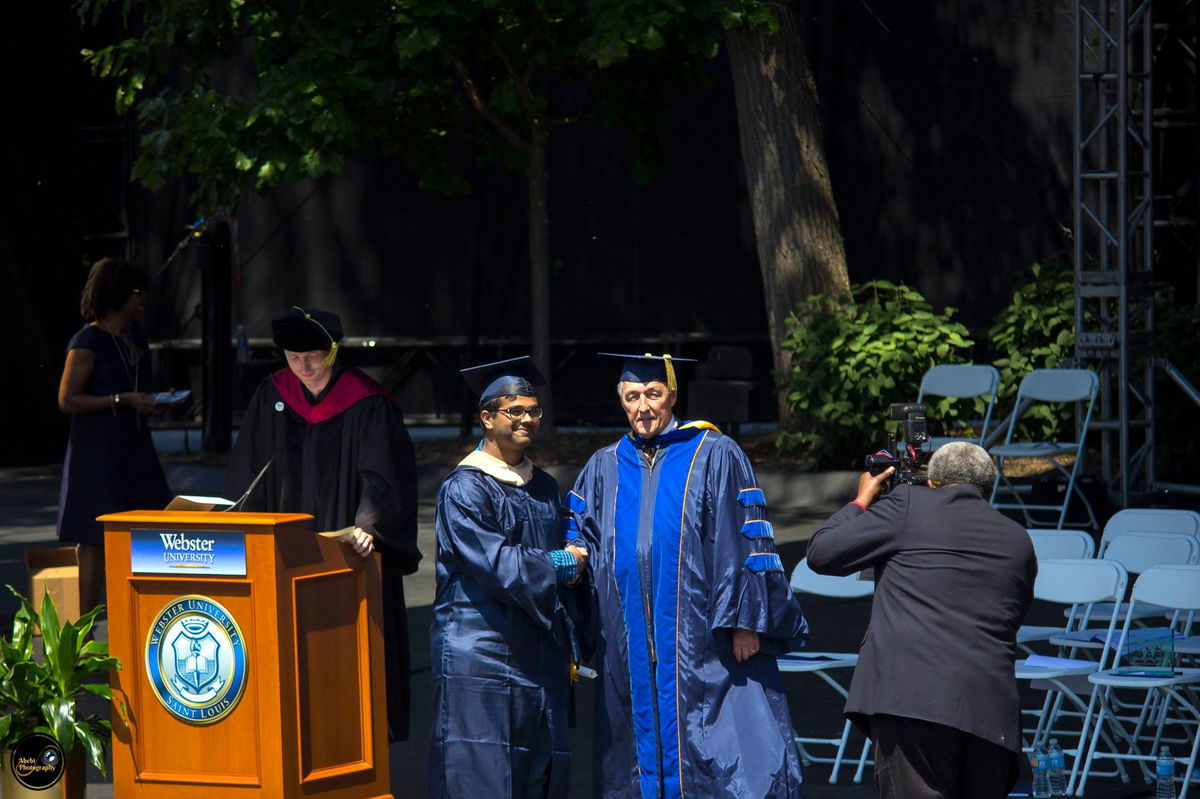
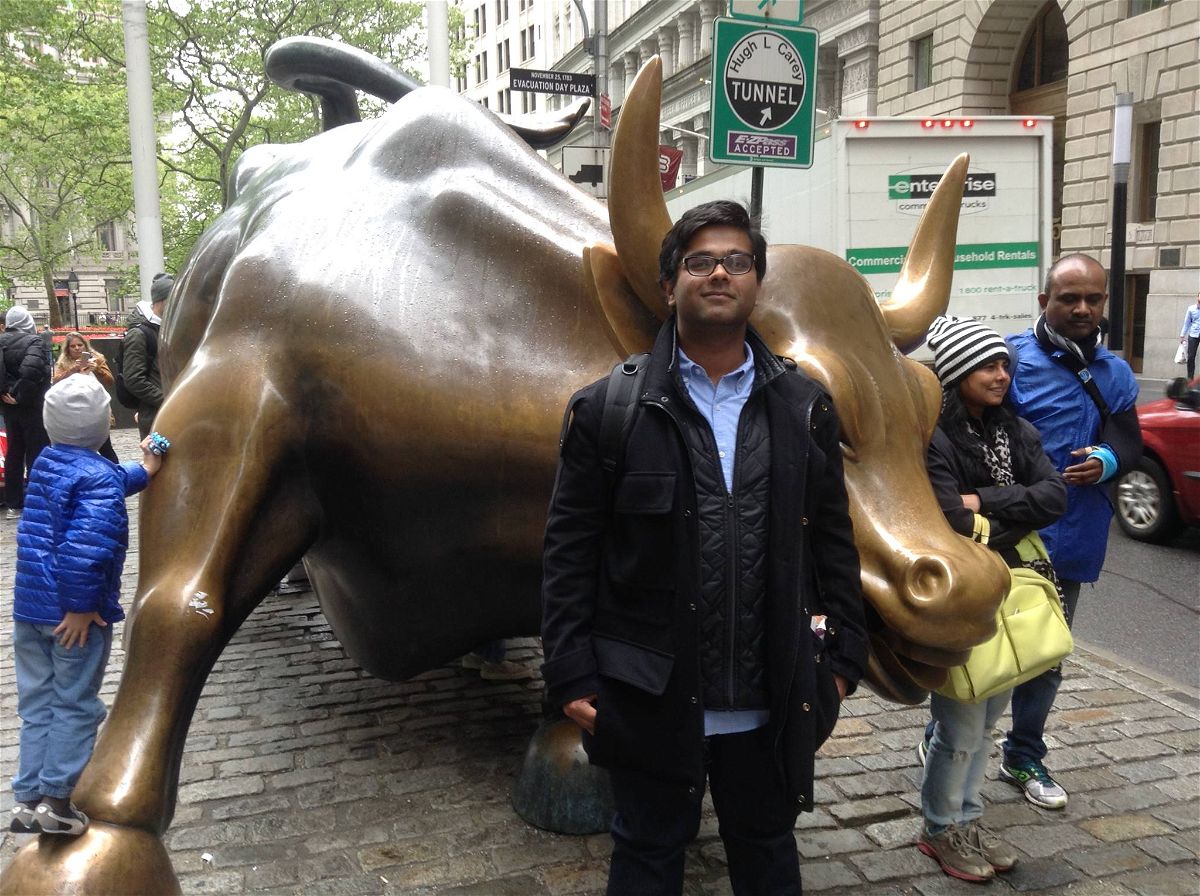
SS: Do you feel at some point that all this effort and energy that you put in chess was not worth it?
AJ: A little bit of both. Chess has done great things for me. It has made me focus better, taught me how to think, helped me be an objective person, taught me how to work hard and a lot more. However, I think that there is a point of diminishing returns. Studying chess can teach you a lot about chess and life, but after a certain point studying chess only helps you get better at chess. While this is good for chess, the issue is that a lot of time is invested in skills that are not transferable to another field.
Chess has been a great source of pleasure for me, but I think I could have spent more time learning about other things. I think that studying only chess made me very one dimensional. Because of that, when I played a bad game of chess, I took it very personally (which is probably another factor that made it hard to progress).
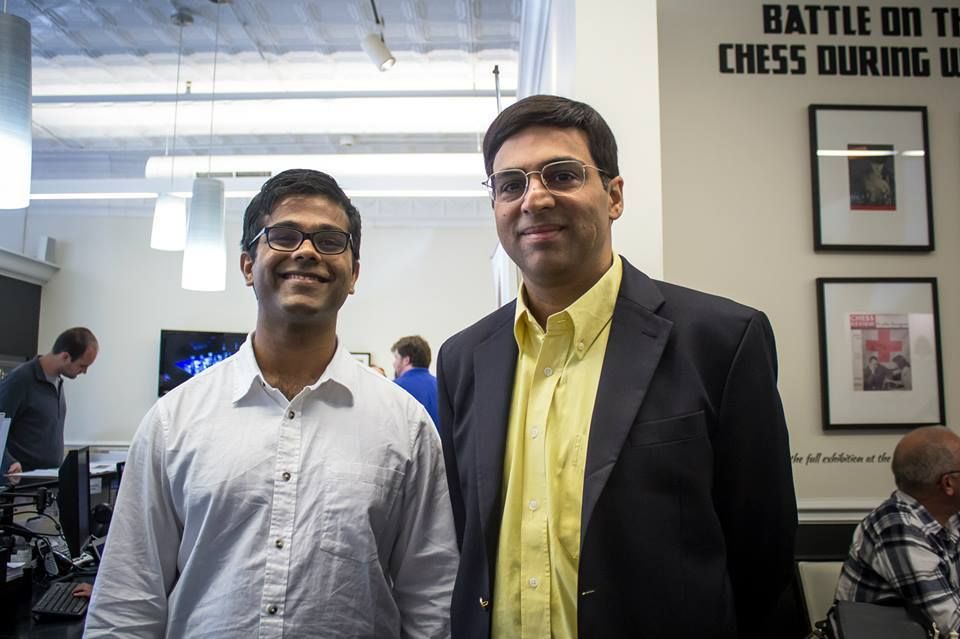
SS: What are your future plans?
AJ: For now, I want to grow in the corporate world and learn more about the fields that interest me. I’m still doing some chess coaching and may get back to creating chess content soon. When I think that my work situation is more consolidated, I plan on doing some serious chess preparation and play strategically chosen tournaments.
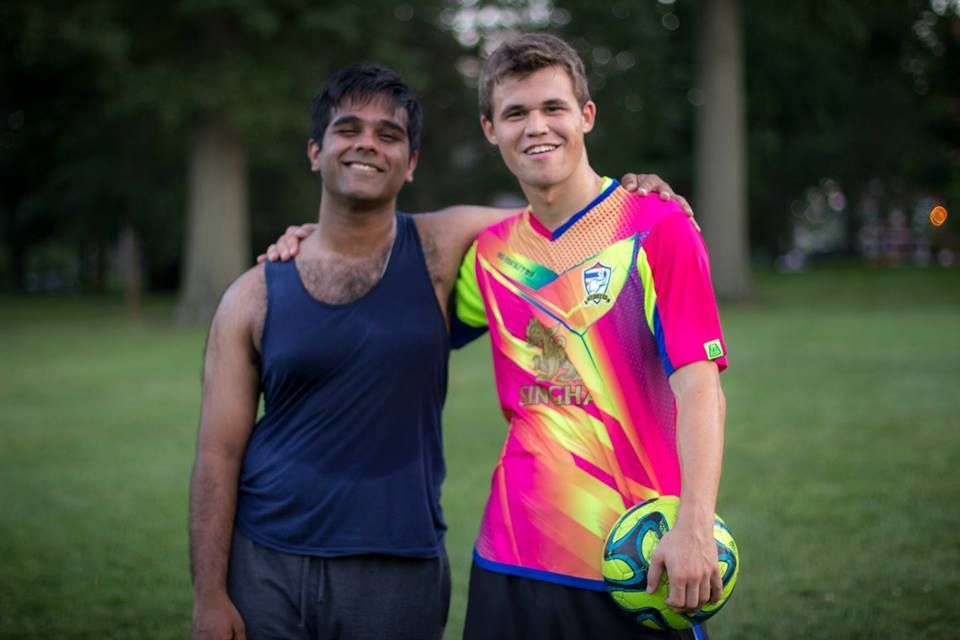
SS: What is your advice to the youngsters, more specifically Indian youngsters on how to mould their careers?
AJ: My main advice is to never forget that the reason you play chess. It's because you enjoy it. That is something that I would often forget. I would also recommend that chess players who don’t focus much on school, should still get some studying done. Not for the degree, but to learn more about the world around you. Just like with chess, there is an abundance of good material in a variety of fields.
Perhaps I sound cynical, but I think young players have to be very clear about what they want from chess. There is a very small percentage of people that make a good living playing professional sports and you have to consider the success to effort ratio. If the goal is just to enjoy the game or to reach a certain level, then things are a lot simpler.
Often, it is very easy to think that “if I reach a certain level (for example GM, or 2600), then my life is settled”. However, one thing that I have learnt is that there is no such thing as “settled”. Life keeps going on, and there is always something to work on or some problem to fix. Many people think of something like the GM title as a goal. While it is a very worthy goal, its important to remember that life goes on after you become a GM. And even after becoming a GM, going to the next level is extremely hard.
If the goal is to give your life to the game, then I think that the youngsters should set clear goals and have a timeline to fulfill them. For example, in getting to 2500 in the next 3-5 years (or something like that). The good thing about the rating system is that it’s a good indication of where you stand in the chess world. If those goals aren’t met within that time frame, then there needs to be an objective reassessment.
And for those who are crazy about the game, they should not forget that chess is not life. Chess is just a part of life. All in all, I have reached a respectable level in chess, have a clear goal for the future, and best of all, I still have the rest of my life to enjoy this game!


